Today we live in a society, which can not imagine life without expressing views on social media. Probably it does have certain advantages. Nevertheless, many participants of active discussions have already forgotten or do not even know about the developments, which unfolded in Armenia 5, 10 or 15 years ago.
To fill the gap Mediamax presents 5/10/15 project, which introduce developments in Armenia 5, 10 and 15 years ago.
• 15 YEARS AGO: MARCH 22-28, 2006
“Western forces would like to come to Armenia”
On March 23, head of the Border Guard Department of the Russian Federal Security Service (FSS) in Armenia, General Lieutenant Sergey Bondarev said that if the Russian border guards left Armenia, “others will come”.
“Clearly, the western forces would like to come here. In this respect they, especially the U.S., do a lot rendering technical and other assistance to the Armenian army. They allocate huge sums, purchase special techniques, even sensors, for checkpoints on the Georgian-Armenian and Armenian-Iranian borders,” the Russian General said in the interview with Russian Military-Industrial Courier magazine.
Sergey Bondarev pointed out that according to Armenian-Russian agreements, as soon as the Armenian national border guards were fully trained, they would gradually take over the parts of the borders.
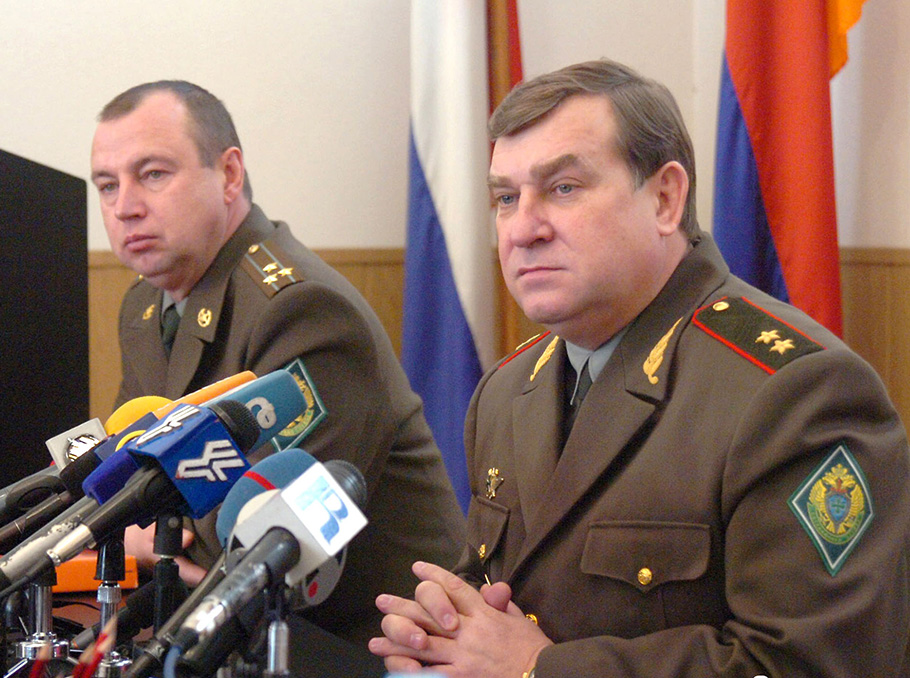 Sergey Bondarev
Sergey Bondarev Photo: Photolure
“However, this question is not on the agenda taking into consideration the situation on Armenia’s borders. I think they will long need our assistance. That is why we speed up the preparation of Armenian contract border guards, though the institute of contract servicemen in the Armenian army is still developing. There are still numerous problems in Armenia regarding the protection of borders. For example, the protection of the Armenian-Azeri border (over 900 kilometers) requires huge human and material resources. There are extended military sub-units here, which need to be maintained and equipped. We are responsible for the Turkish-Iranian part of the border - this is a huge help to Armenia,” he said.
On March 22, a Border Guard training Center, renovated with the U.S. government assistance, opened in Yerevan. The official news release of the U.S. Embassy said that “several groups of Armenian border guards have attended 1-2 month training courses since the renovation for the first part of the building in preparation for taking over the responsibilities at Zvartnots Airport from the Russian Border Guard.” At the same time, the head of the Armenian Border Guards Armen Abrahamian said that the Russian border guards would not be completely replaced at the airport.
• 10 YEARS AGO: MARCH 22-28, 2011
“No chance for a good country if schools don’t change”
At the meeting with the headmasters of capital’s schools on March 22, Yerevan Mayor Karen Karapetyan said:
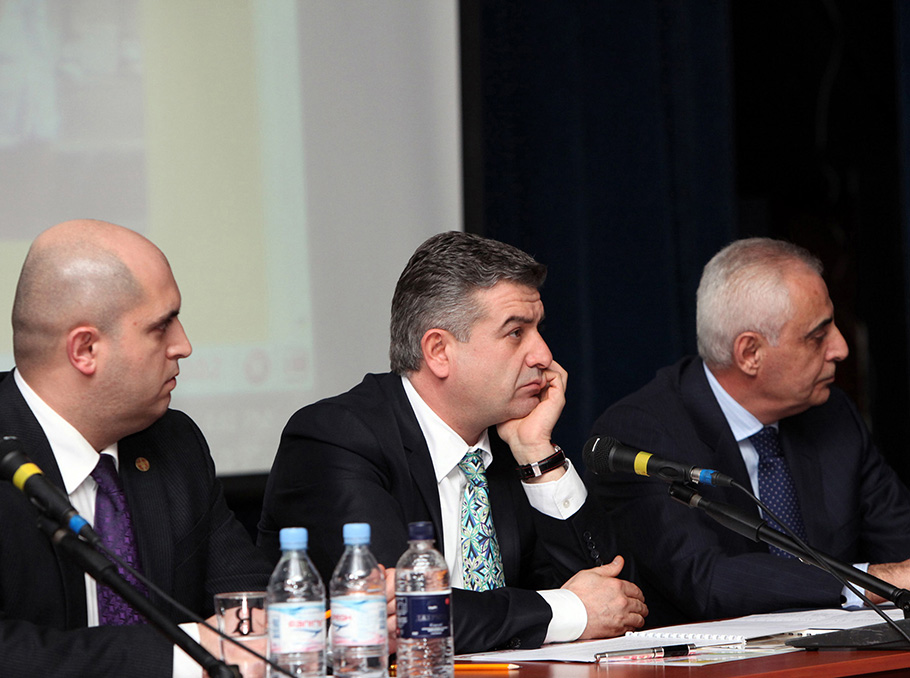 Armen Ashotyan, Karen Karapetyan and Kamo Vardanyan on March 22, 2011
Armen Ashotyan, Karen Karapetyan and Kamo Vardanyan on March 22, 2011Photo: Photolure
“There are many children who have never attended cinemas as they didn’t have the chance. These visits, the creation of this atmosphere will certainly change something. This is what I wanted to tell you. If we want to have a good country, and the schools do not change, we will have no chances.”
Karapetyan vs. “feudalism”
On March 28, Mayor of Yerevan Karen Karapetyan said that he was going to renounce “feudal tendencies” in governing the city.
“The spheres having business-logic should be transferred to private management,” he stated.
“There are, certainly, such feudal tendencies - the more branches, spheres or companies you control, lead or manage, the stronger you become. It is absolutely wrong. Moreover, we are ready to transfer our fully owned subsidiary companies to private management. Corruption risks decrease in business management. We must create a system which will allow people earn money legally. Any fight against corruption envisages resolution of a basic issue. If you fail to resolve it the corruption will not be eliminated. If you don’t give a chance to earn legally, everyone seeks ways to do it themselves,” said Karapetyan.
Turkey could play the role of “peacekeeper”
On March 22, specialist in Turkic studies Ruben Melkonyan stated that the “hyperactive” foreign policy of Turkey might lead not only to its leadership in the Middle East, but also to trying out the role of a “judge” or a “peacekeeper” in the South Caucasus.
Melkonyan stated that the events in the Middle East created favorable conditions for consolidation of Turkey’s position.
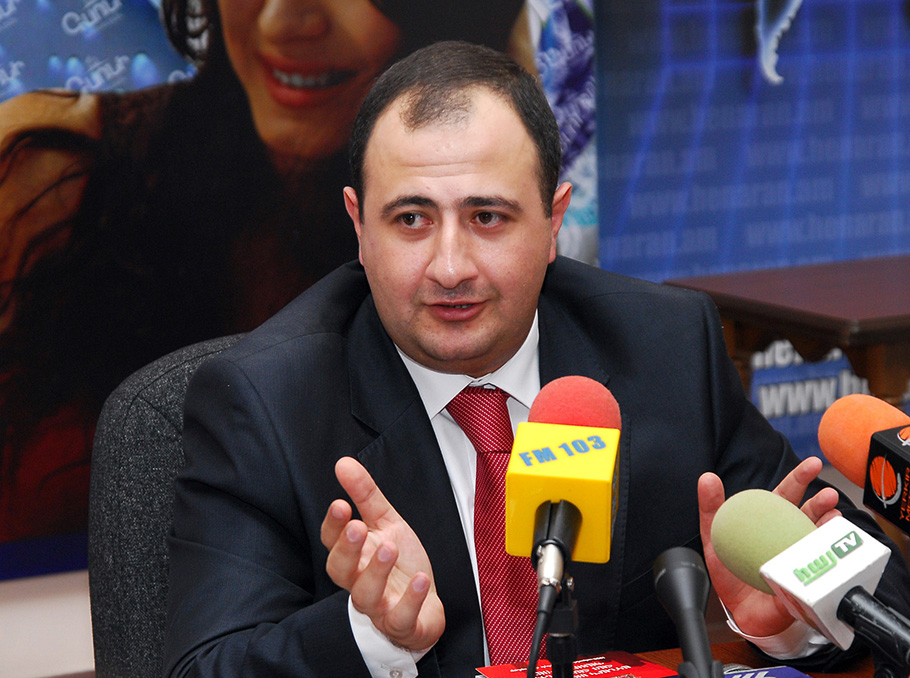 Ruben Melkonyan
Ruben Melkonyan Photo: Photolure
“Using the model of combination of Islamic values and its comprehensibility for the West, Turkey tries to try out the role of a mediator between the West and the Arab world. At the same time, Ankara tries to prove that it can be a mediator in the region, where there are tense conflicts: not only in the Middle East, but also in the South Caucasus,” said the expert.
U.S. Ambassador describes Baku’s statements as “absolutely unacceptable”
On March 23, U.S. Ambassador to Armenia Marie Yovanovitch described the statements of Baku on the intention to shoot down civil airplanes trying to land in Stepanakert Airport as “absolutely unacceptable”.
The American diplomat urged Azerbaijan to respect the commitments on peaceful settlement of the conflict.
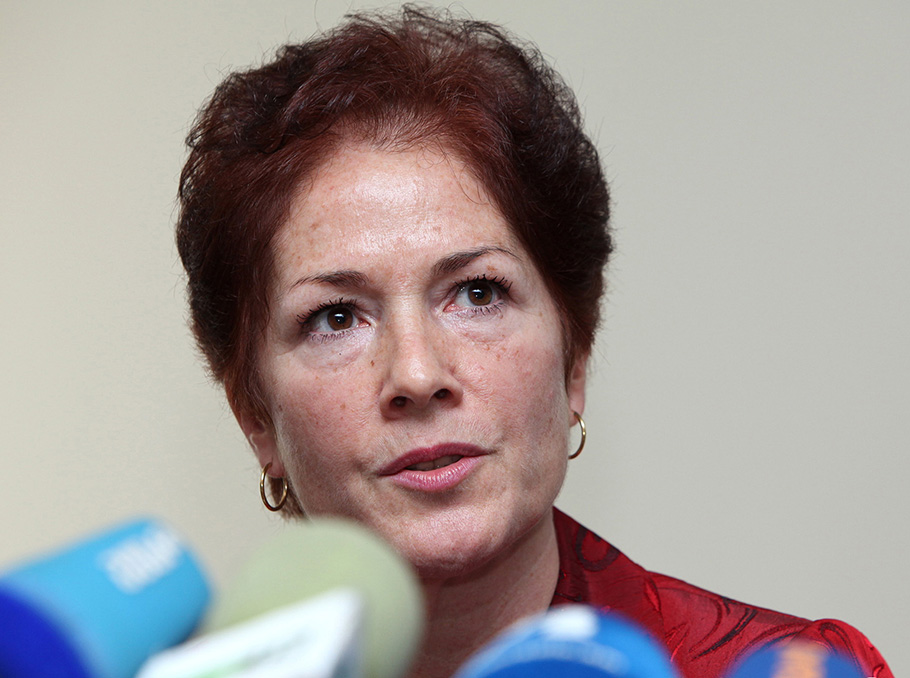 Marie Yovanovitch on March 23, 2011
Marie Yovanovitch on March 23, 2011Photo: Photolure
Marie Yovanovitch stated that Washington had a very serious attitude towards all principles of Karabakh conflict settlement but at the same time thought that “the principle of non-use of force is the most important, since this conflict does not have a military solution”.
Oskanyan “did not deserve the right to advise the Armenian President”
On March 24, Armenian National Assembly speaker Hovik Abrahamyan said that former Armenian Foreign Minister Vardan Oskanian “did not deserve the right to give advice to the Armenian President.”
Abrahamyan said that, commenting on the remark by former FM Vardan Oskanyan, who said that Serzh Sargsyan ought to visit “Heritage” Party leader Raffi Hovhannisyan and urge him to end his hunger strike.
The co-chairs’ report
On March 24, OSCE Minsk Group Co-chairs presented the “Report of the OSCE Minsk Group Co-Chairs' Field Assessment Mission to the Occupied Territories Surrounding Nagorno-Karabakh” in Vienna.
“The OSCE Minsk Group Co-Chairs conducted a Field Assessment Mission to the seven occupied territories of Azerbaijan surrounding Nagorno-Karabakh (NK) from October 7-12, 2010, to assess the overall situation there, including humanitarian and other aspects. In traveling more than 1,000 kilometers throughout the territories, the Co-Chairs saw stark evidence of the disastrous consequences of the Nagorno-Karabakh conflict and the failure to reach a peaceful settlement. Towns and villages that existed before the conflict are abandoned and almost entirely in ruins. While no reliable figures exist, the overall population is roughly estimated as 14,000 persons, living in small settlements and in the towns of Lachin and Kelbajar. The Co-Chairs assess that there has been no significant growth in the population since 2005,” the report said.
• 5 YEARS AGO: MARCH 22-28, 2016
“A kingdom of distorting mirrors”
On March 23, Edward Nalbandian stated in Stepanakert that Azerbaijani government lost touch with reality.
“This concerns not only the issue of NKR. They claim that Azerbaijan is neither more nor less than the most stable, democratic, tolerant, and the most human rights secure country in the world, which can serve as an example for other states, while various international organizations and human rights agencies all state the opposite. A kingdom of distorting mirrors is created in the country where authorities look in the mirrors, laugh all by themselves, and call others to live in the same world of distorting mirrors,” said the Armenian FM.
Ara Tadevosyan
















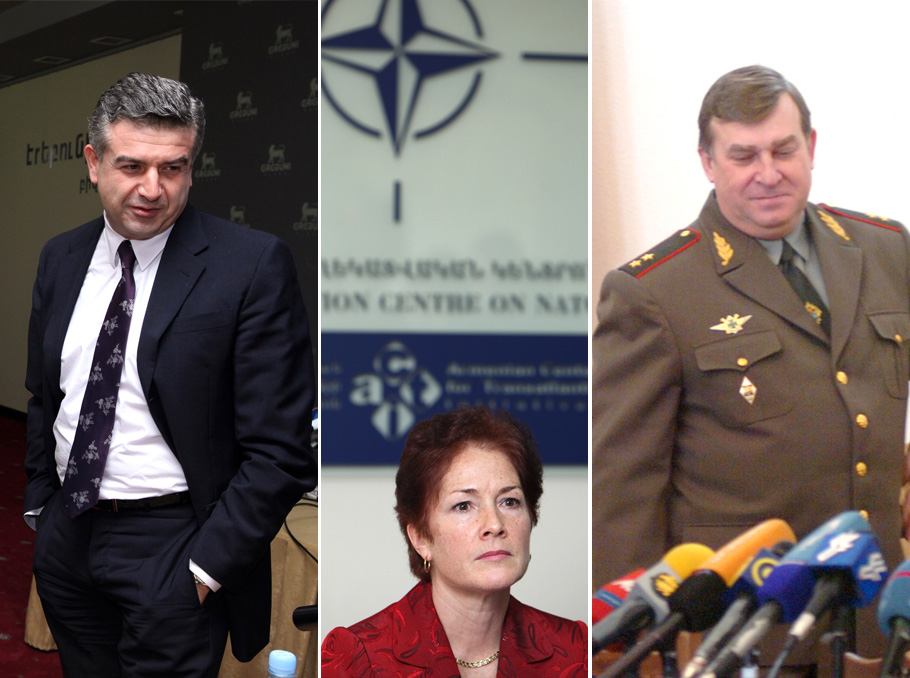

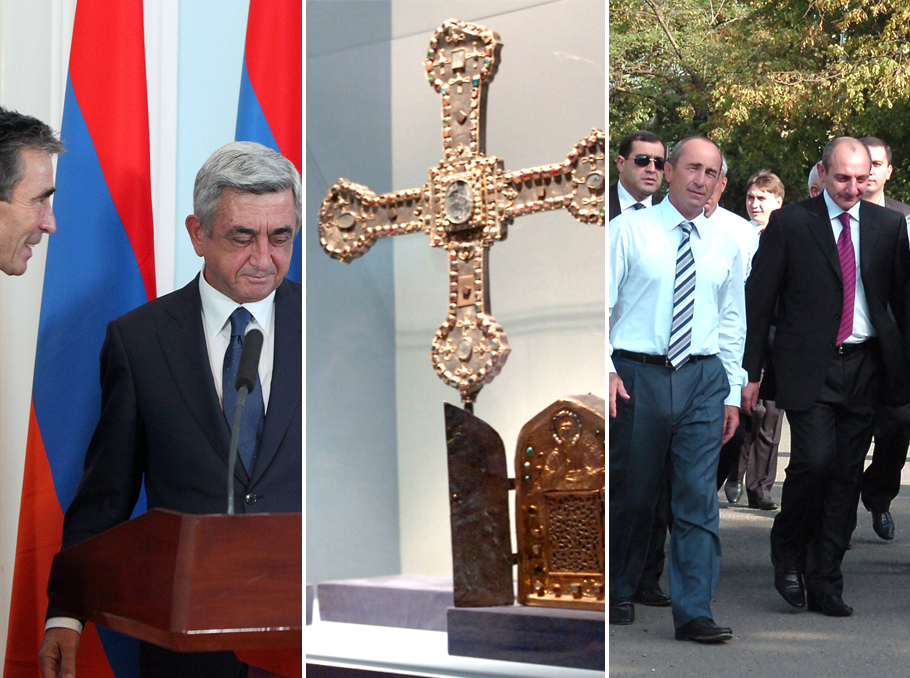
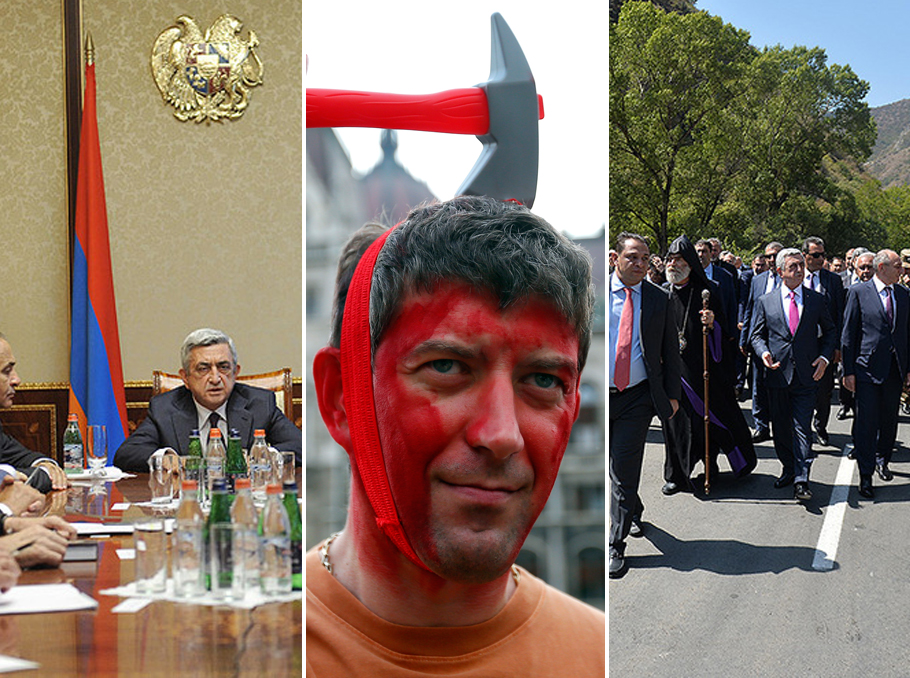
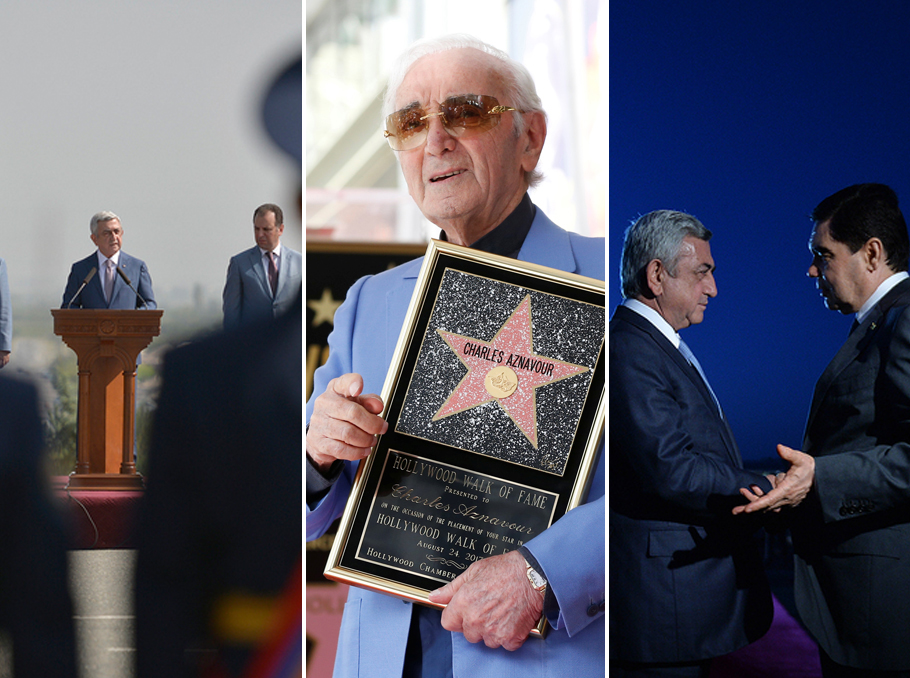
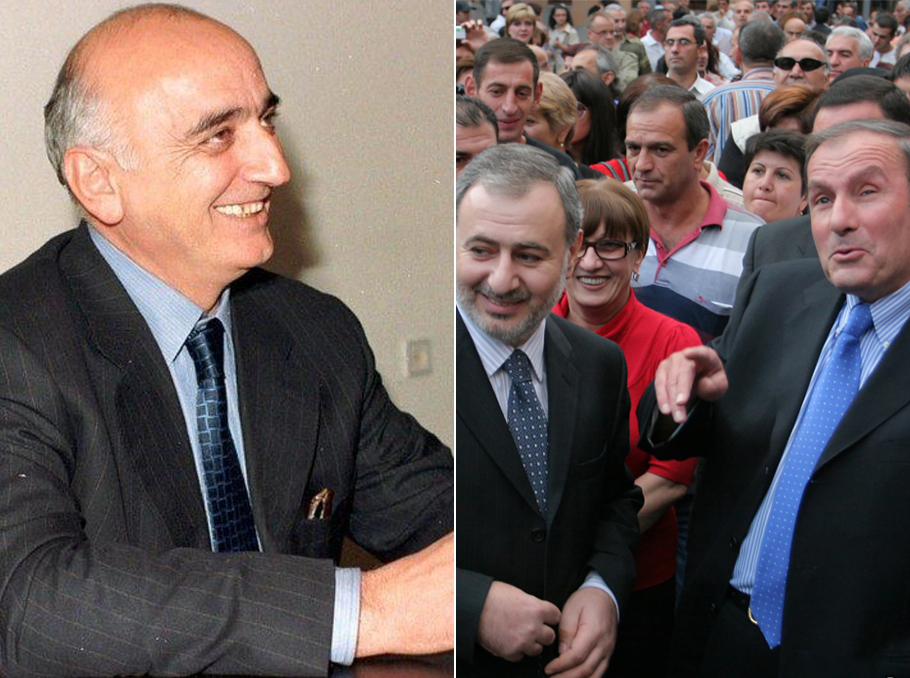
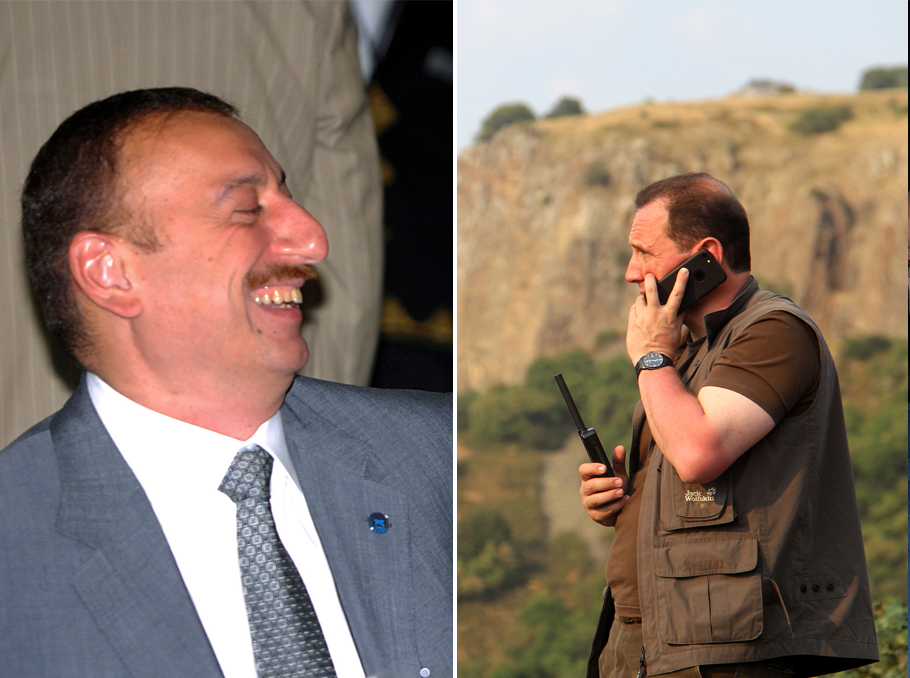





Comments
Dear visitors, You can place your opinion on the material using your Facebook account. Please, be polite and follow our simple rules: you are not allowed to make off - topic comments, place advertisements, use abusive and filthy language. The editorial staff reserves the right to moderate and delete comments in case of breach of the rules.